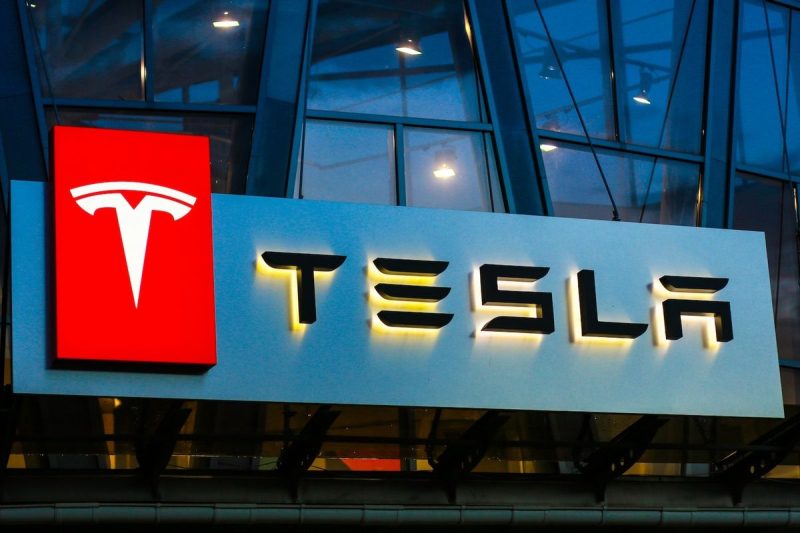
Tesla Doing Damage Control in Europe as Retail Price Cuts Hurt Leasing Companies
Tesla (NASDAQ:TSLA) is taking steps to mend strained relationships with European leasing companies following a series of retail price cuts that have negatively impacted fleet values.
According to Reuters, Elon Musk’s Tesla is attempting to stabilize its market position by offering unofficial discounts and addressing longstanding service issues to restore confidence among buyers.
Tesla’s retail price cuts were designed to counteract softening global demand for electric vehicles (EVs) and rising competition, particularly from Chinese automakers like BYD (OTC Pink:BYDDF,SZSE:002594). However, these reductions have led to financial losses for European leasing companies, which make up nearly half of the region’s auto sales.
The news outlet notes that fleet customers are especially important in Europe, where companies often lease large amounts of company cars for employees. In fact, purchases from leasing and rental car companies made up 44 percent of Tesla’s sales last year in the UK, as well as 15 EU countries. In Q1, its fleet sales in those areas fell by 2.3 percent.
Leasing firms calculate lease prices based on the anticipated resale value of vehicles. Sudden drops in retail prices have severely undercut these residual values, causing significant financial strain.
Richard Knubben, director general of Leaseurope, emphasized the severity of the situation, telling Reuters that there’s “nothing worse than continuously dropping the value of a fleet buyer’s assets.”
In an additional setback, Tesla began slashing Model Y production in Shanghai in March. Data from the China Association of Automobile Manufacturers shows that output of Model Ys in China stood at 49,498 units in March and 36,610 units in April, reflecting 17.7 percent and 33 percent decreases, respectively, compared to a year ago. The production reduction aims to address weakening demand in China, where a price war has erupted amid an economic slowdown.
Overall the company is grappling with an inventory surplus, having produced 46,561 more vehicles than it delivered in Q1. This overproduction has resulted in thousands of unsold cars being stored in parking lots.
European fleet managers report Tesla service problems
Beyond pricing issues, Tesla has been criticized for slow and expensive service, a major pain point for fleet customers.
Lorna McAtear, fleet manager at UK energy firm National Grid (LSE:NG,NYSE:NGG), told Reuters in an interview that Tesla’s repair costs are triple the industry average, with vehicles often arriving with defects.
Despite these challenges, some fleet managers, like Fiona Howarth of Octopus EVs, remain supportive, acknowledging Tesla’s pioneering role in the EV market. Tim Albertsen, CEO of Ayvens (EPA:ALDA), Europe’s largest auto-leasing company, acknowledged improvements in Tesla’s service, but highlighted the damaging effects of falling resale values.
Conversely, Arval, the car-leasing unit of BNP Paribas (OTCQX:BNQPF,EPA:BNP), is exploring partnerships with Chinese EV manufacturers to offset losses from Tesla’s price cuts. Deputy CEO Bart Beckers told Reuters that Tesla’s pricing strategy is self-defeating, saying, “You are really shooting yourself in the foot.”
Operational turmoil within Tesla has been further evidenced by recent layoffs and restructuring efforts, particularly within the company’s Supercharger network division. The abrupt firing of its entire charging division has jeopardized the expansion of its charging infrastructure — a key element of Tesla’s value proposition for EV customers.
Despite ongoing challenges,Tesla investor Scottish Mortgage Investment Trust recently expressed a vote of confidence by announcing its continued support to Musk’s US$56 billion pay package.
Tesla pushing forward as competition increases
Even with these setbacks, Tesla continues to push forward with plans to increase its market share.
Musk has indicated a shift in focus toward self-driving technology, although the company is scaling back on other projects, such as the long-awaited affordable Model 2.
Tesla’s recent activities reflect its efforts to regain the trust of European fleet buyers. Its ability to navigate these challenges will be crucial as it seeks to maintain its market position amid evolving market dynamics.
Securities Disclosure: I, Giann Liguid, hold no direct investment interest in any company mentioned in this article.
